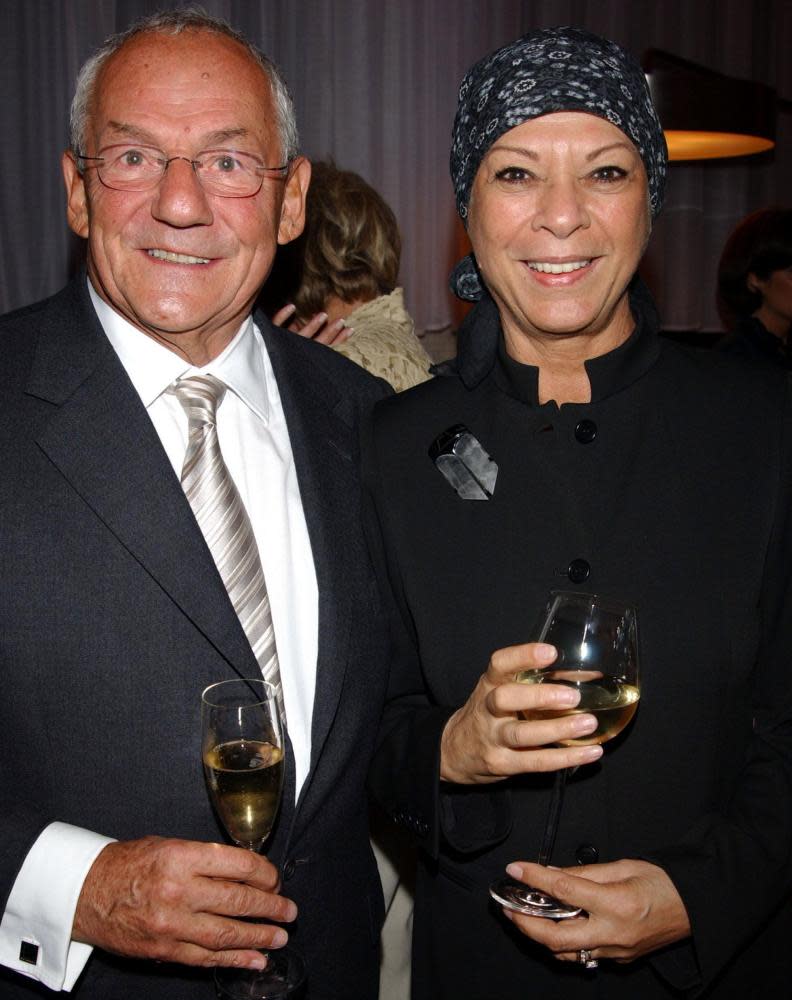Merry widows? How attitudes to bereaved women have changed

There’s a downside to “till death us do part” – it does. For example, 60s model Jan de Souza, co-host of Tramp nightclub with her husband Johnny Gold, died recently: of loneliness, her obituary said. He’d died a year earlier, after 50 years of marriage. It recalls the perfect little poem by Henry Wotton, Upon the Death of Sir Albert Morton’s Wife:
He first deceased; she for a little tried
To live without him, liked it not, and died.
Is it romantic? Or is it shocking that a widow might die of loneliness? It has been known for decades by science (and for aeons by art) that loneliness is bad for our health: as damaging as 15 cigarettes a day, or alcoholism. Lonely people are 50% more likely to die prematurely than those with good relationships. Stress affects you more with no one to help you; financial and health problems are yours alone, and everyday obstacles take a bigger emotional toll. It reduces your immunity, and increases inflammation, which can contribute to heart disease. And there’s nobody to nag you to go to the doctor.

Then Friday was International Widows Day. But what even is a widow, in these days of declining marriage? It’s a woman whose husband has died, yes. Or a woman whose wife has died. Or the partner who she’s lived with for years? Strictly, no, but actually, of course. We don’t want to be churlish.
Fiancé? Hm, maybe. That was my situation: I slipped a ring on his finger while he was in his final coma, and the vicar said at his funeral that it counted in the eyes of God, but it certainly wasn’t anything legal.
How about ex-husband, or wife – father or co-parent of her children? Perhaps they maintained a good and close family relationship. Does that count? It kind of should do. Or, partner she’s never lived with? What if she’s young, and they were always going to get married – is she a widow?
As our lives become socially freer, and habits change, widowhood seems almost an old-fashioned concept. But it carries on. Covid, displacement and new wars increase the numbers, and widows of all kinds are often left unseen, unsupported and unmeasured. There are more than 3 million widows in the UK; 258 million worldwide. Officially. Including all those unmarried widows, just as bereft as their on-paper sisters, there are exponentially more.
Across the world, the security of widows often depends on the generosity of their husband’s families. Must she shave her head? Marry her brother-in-law? Obey contradictory customs and laws? Be seen as carrier of misfortune or disease? Be excluded from family and society? In ancient Greece, a husband could leave his wife to whoever he wanted.
Still now, from the Home Counties to religiously restricted societies, she can be a dangerous proposition: neither virgin nor wife, but a sexually experienced woman who belongs to nobody. God forbid she be free.
There’s a great deal of cultural freight on the woman whose partner is dead. So what is she to do?

Well, she can die, perhaps of a broken heart. This used to be seen as the respectable way out, a strong tradition. It reached a peak in parts of medieval India, where widows had inheritance rights, so sati – self-immolation on your husband’s funeral pyre (sometimes assisted) – was seen as not just honourable but also practical: a widow’s life would be miserable anyway, and other people wanted the money.
Widows have occasionally been allowed to become sort of proto-men, taking on their husband’s attributes – his business, his authority. Mafia widows, widows of dictators, and Lynda La Plante’s gangster widows, immortalised on TV and in film, are examples.
Or a widow can be solved: coupled up again. The first world war helped to move things along: because there were so many surplus women, ways had to emerge for them to look after each other. They didn’t all want to emulate Queen Victoria, drooping about in black mourning clothes (widows’ weeds – what a term!); or dedicate themselves to the ouija board. There was suddenly more opportunity for female independence, and quietly worn lesbianism.

Widowhood, merry or otherwise, is a touchstone for change and vulnerability. Often she’s seen as predatory, after other women’s husbands (often husbands no sane woman would touch with a pole). Or she’s prey – the Merry Widow in the opera was wealthy; everybody was trying to marry her off to keep her money in the neighbourhood. So merry!
And she’s always good for romantic ghost stories: in Truly Madly Deeply, her dead husband brings his friends over and it all becomes quite inconvenient, even though he is Alan Rickman. In Ghost, her life is saved by the ghost of her late husband. In The Ghost and Mrs Muir, she has to wait till she herself is dead to be reunited with her ghostly lover.
In my most recent novel I follow this inspiration and look at widowhood from the point of view of the dead: a pair of matchmaking ghosts, trying to comfort their heartbroken widows and, maybe, get them together. I profoundly believe widows need all the help they can get.
In reality, widowhood can be the starting point of a new story. When she is adult, solvent, children grown up, maybe post-menopausal but not dead yet, thank you, the widow can perhaps, in time, find a new life on her own terms. Emma Thompson’s Nancy, in Good Luck To You, Leo Grande, hires a preternaturally sweet sex worker in search of the orgasms she never had within marriage. No sati here; no Queen Victoria. Just something almost, finally, practical?
Louisa Young’s novel Twelve Months and a Day is out now

 Yahoo News
Yahoo News 
